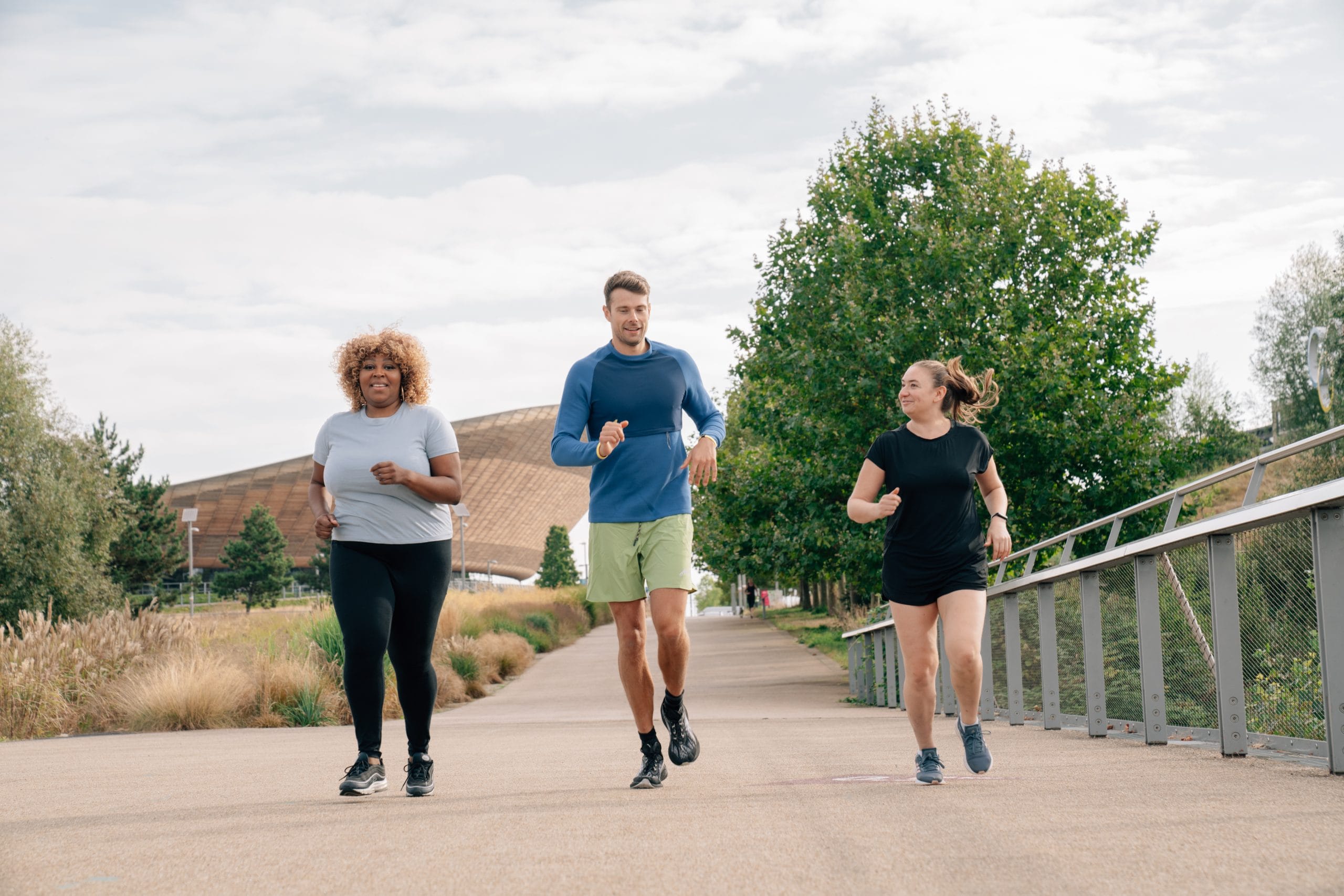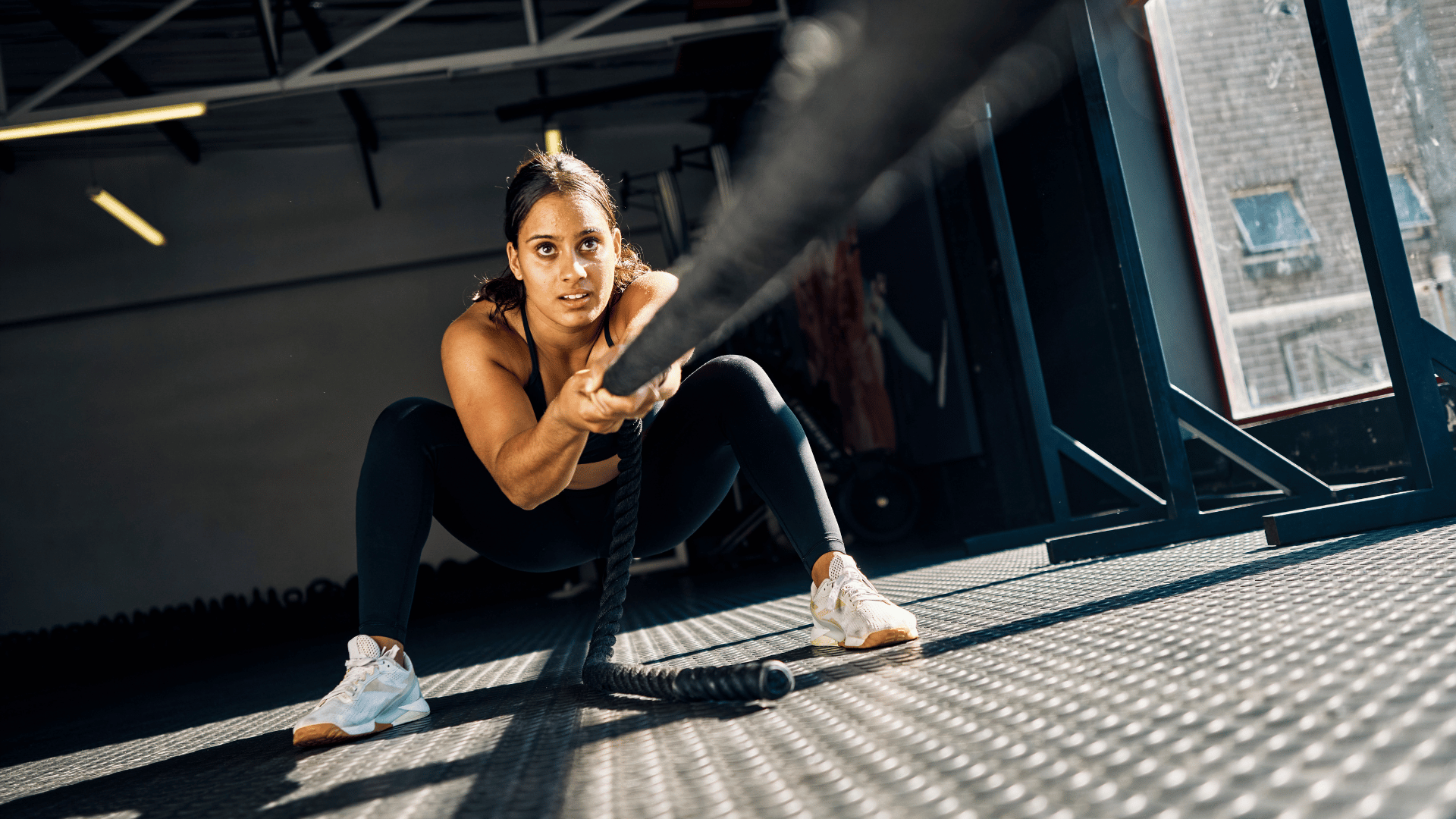Compression Socks for Marathon Training: Do They Help?

Claire Small
Chief Clinical Officer & Consultant Physiotherapist
- 24 October, 2024
- Running
- 4 min read
Compression Socks for Marathon Training: Do They Help?

Compression socks have gained popularity among athletes, particularly runners, due to their potential to enhance performance and aid in recovery. But what exactly are compression socks, and how do they work?
Unveiling the Science Behind Compression Socks
Compression socks are specially designed garments that apply graduated pressure to the legs, ankles, and feet. The pressure is highest at the ankle and gradually decreases as it moves up the leg. This gradient compression is crafted to improve blood flow, effectively aiding the veins in transporting blood back to the heart. By enhancing circulation, compression socks can help reduce swelling and lactic acid build-up, which are common issues for runners.
The science behind compression is rooted in promoting better venous return, meaning the blood is efficiently circulated back to the heart, reducing the risk of blood pooling in the lower extremities. This improved circulation can lead to a number of benefits, especially for those engaging in endurance sports like marathon running.
Why Runners Should Consider Compression Socks?
For runners, particularly those training for marathons, maintaining peak physical condition is crucial. Compression socks can be a valuable addition to their gear, offering several potential benefits that could make a difference during training and on race day.
First, compression socks are thought to reduce muscle oscillation, which occurs during the impact of running. By providing muscle support, it is theorised they can reduce the microtrauma to muscle fibres, potentially decreasing muscle soreness and fatigue. This is particularly beneficial during long runs, where sustained endurance is key.
Additionally, compression socks can aid in recovery post-run. The enhanced blood flow helps in the quicker removal of metabolic waste products from muscles, speeding up recovery times. This means less downtime between training sessions, allowing for more consistent and effective training schedules.
Compression Socks and Enhanced Circulation: A Winning Duo
Enhanced circulation is one of the primary benefits of wearing compression socks, especially for long-distance runners. Good circulation ensures that oxygen-rich blood reaches your muscles efficiently, which is crucial during a marathon when your body is under considerable physical stress.
The graduated compression applied by these socks mimics the natural pumping mechanism of the muscles, helping blood flow upwards from the lower legs to the heart. This can prevent the heavy, tired feeling often experienced in the legs during prolonged running sessions. Moreover, by facilitating better circulation, compression socks can help reduce the risk of deep vein thrombosis, a condition that can be a concern during long periods of running or inactivity.
For runners, improved circulation can translate into enhanced endurance and performance, helping them achieve their personal bests while also contributing to overall cardiovascular health.
Reducing Muscle Fatigue with Compression Technology
Muscle fatigue is a common challenge for runners, particularly those training for marathons. The repetitive nature of running can lead to muscle strain and soreness, which can hinder performance and lead to injuries if not managed properly.
Compression socks are designed to support the muscles and reduce fatigue by minimising muscle vibration and oscillation. This can lead to increased proprioception, allowing runners to sense their body position and movement more acutely, which can improve running efficiency and technique.
Furthermore, by stabilising the muscle tissue, compression socks can help minimise damage caused by the repetitive impact and loading during running. This can lead to a more enjoyable and pain-free running experience, allowing athletes to focus on their performance rather than discomfort.
The Role of Compression Socks in Marathon Training
Marathon training is a demanding process that requires consistent effort and attention to detail. Compression socks can play a pivotal role in this journey by providing both physical and psychological benefits.
Physically, they help maintain muscle integrity during long training runs and speed up recovery times, as previously mentioned. This means runners can train harder and more frequently without the constant threat of injury or fatigue. Psychologically, wearing compression socks can give runners a sense of preparedness and confidence, knowing they have taken an extra step to protect their legs and enhance their performance.
For marathon runners, every little advantage counts, and compression socks can be the edge needed to cross the finish line faster and with less pain.
Aerodynamic Advantage of Compression Socks Beyond Running
Compression socks can provide a surprising aerodynamic advantage when running. By applying pressure to the lower legs, these specialised socks help reduce muscle vibration and improve blood flow, which can lead to enhanced performance.
The snug fit of compression socks creates a smoother surface along the legs, potentially reducing air resistance and turbulence. This streamlined effect, although seemingly minor, can contribute to improved speed and efficiency, especially during long rides or competitive events.
While the primary benefits of compression socks are often associated with recovery and circulation, their aerodynamic properties make them a valuable consideration for runners looking to optimise their performance through every possible means.
Best Socks For Marathon Running with Optimal Results
Choosing the right pair of compression socks is vital to ensure you reap all the benefits they offer. Here are some tips to consider when selecting compression socks:
Fit and Size
Make sure the socks fit snugly but not too tightly. They should provide firm support without causing discomfort or restricting blood flow. It’s important to measure your calf and ankle size to find the correct fit.
Material
Opt for socks made from breathable and moisture-wicking materials. This will help keep your feet dry and comfortable, reducing the risk of blisters during long runs.
Compression Level
Compression socks come in various levels of pressure, measured in millimetres of mercury (mmHg). For running, a moderate level of compression (15-20 mmHg) is typically recommended, but those with specific needs or medical conditions might require different levels.
Design and Length
Compression socks come in different lengths, from ankle to knee-high. Knee-high socks are generally preferred for running as they offer more comprehensive coverage and support.
By selecting the right compression socks, you can enhance your running experience, protect your legs, and potentially improve your marathon performance. Whether you’re a seasoned marathoner or a casual runner, compression socks can be a valuable addition to your training toolkit.

Advice
Over the last 20+ years our experts have helped more than 100,000 patients, but we don’t stop there. We also like to share our knowledge and insight to help people lead healthier lives, and here you will find our extensive library of advice on a variety of topics to help you do the same.
OUR ADVICE HUBS See all Advice Hubs

